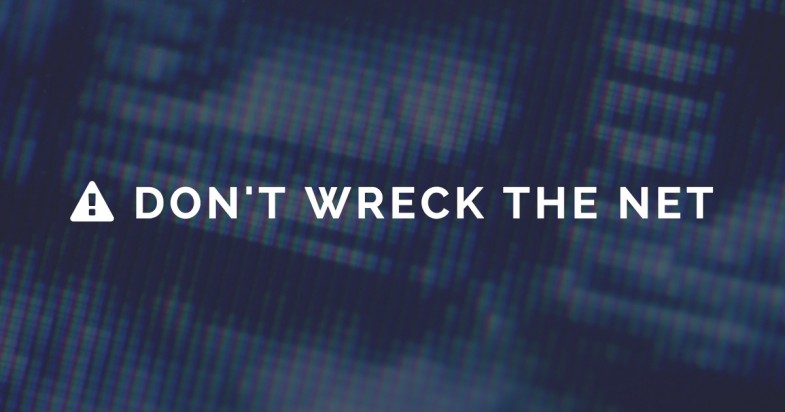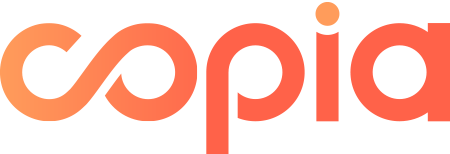Facts, Not Fear: The Truth About Encryption Crowdfunding To Support Techdirt’s Encryption Reporting Today’s encryption debate is based on fiction and fear. Americans are worried about terrorism and crime, and the potential for the Internet to help them spread. Encryption has become an easy target. Politicians make a simple argument: less encryption means more safety. But […]
Topic: Privacy
Popular Topics
Library Collections
Blog Categories

Tech Companies Ask European Commission Not To Wreck The Internet — And You Can Too
Late last year, we told you about a worrisome effort by the European Commission to saddle the internet with unnecessary regulations. They had released an online “consultation” which was ostensibly part of the effort to create a “Digital Single Market” (a good idea in the world of a borderless internet), but which appears to have been hijacked by some bureaucrats who saw it as an opportunity to attack big, successful internet companies and saddle them with extra regulations. It’s pretty clear from the statements and the questions that the Commission is very much focused on somehow attacking Google and Facebook (and we won’t even get into the fact that the people who are looking to regulate the internet couldn’t even program a working online survey form properly). However, as we noted, Google and Facebook are big enough that they can handle the hurdles the EU seems intent on putting on them: it’s the startups and smaller tech firms that cannot. The end result, then, would actually be to entrench the more dominant players.
We helped created a “survival guide” for those who wished to fill out the (long, arduous) survey, and many of you did. We’ve now spearheaded a followup effort, which we’ve put up on the Don’t Wreck The Net site. It’s a letter to the EU Commission, signed by a number of internet companies and investors who care deeply about keeping the internet open and competitive. You can see the letter on that site, and it has already been signed by investors such as Union Square Ventures and Homebrew and a bunch of great internet companies, including Reddit, Medium, DuckDuckGo, Patreon, Automattic (WordPress), Yelp, CloudFlare, Shapeways and more.

This Survey Sucks, And The Internet Needs You To Fill It Out
Today, we’re launching a new initiative called Don’t Wreck The Net. The European Commission is holding a public consultation on new regulations for the internet, and the only way to send comments is through a painfully long and oblique online survey. Unfortunately, thanks to those five pages of small print and confusing questions, most people don’t seem to have realized just how big a deal this consultation is — and it only runs until December 30th.
It is funny to see how some people react to technology changes, almost always assuming that “new” is somehow bad, because it’s different. Looking back through historical examples, they often look pretty funny. Last year, we wrote about an old moral panic in the NY Times from 1878 about two Thomas Edison inventions, the phonograph and the aerophone (basically a broadcasting system for the phonograph). It’s somewhat hilarious to read these days:
We know that most startups don’t have time to sit down and hash out policies for every single eventuality, and that’s why we’ve created the Open Source Policy Project. We’re building a github repository, but instead of useful code and applications, it’s full of useful policy documents: flexible, modular, easily customizable material to help companies put their commitment to innovation into words. For those that sign on to our Statement of Innovation Principles, it serves as a toolkit to help realize the Principles in full; for everyone, it’s a resource that we hope will make these important but challenging policy discussions easier to tackle.
This was the original launch post on Techdirt for the Copia Institute, on the first day of our 2015 Inaugural Summit.
A month ago, I gave a little preview of the news that we, the team behind Techdirt, were launching a new think tank and network of innovators called the Copia Institute. That launch is happening today, with our event in San Jose, and I wanted to just provide a short post on why we’re doing this, and why it’s so important.
The word “copia” is Latin for abundance — and over nearly two decades of following, researching and writing about the innovation industries, over and over again, we see that it’s the story of abundance. Of an abundance of information, certainly, but also of the role that abundance plays in everything that we do. Businesses, business models and government policies that were all built for a world of scarcity run into trouble when suddenly plopped into a world of abundance. And we see it happening every day. There are the obvious ones that we talk about all the time around here: music, movies, news and software. But it goes way beyond that. A switch from a world of scarcity to one of abundance is going to impact nearly every other industry as well: manufacturing, finance, healthcare, energy and education among others.
Biotechnology, as all sciences, advances step by step and builds on fortuitous and often serendipitous discoveries. In 1951, a woman named Henrietta Lacks was diagnosed with cervical cancer, and a sample of her cancerous tissue cells were taken — without her knowledge or consent — and grown in a petri dish. For decades prior, scientists had been trying to keep human cells alive under laboratory conditions without success, but the tumor cells taken from Henrietta Lacks exhibited a remarkable ability to grow and thrive. These HeLa cells became the first immortal human cells ever grown in a laboratory. Since 2001, five Nobel prizes have been awarded based on research performed with HeLa cells. Trillions of HeLa cells have been bought and sold and used in medical studies all over the world, and they continue to contribute to the advancement of medicine and biology.
This case study examined the history and impact of HeLa cells and their unique policy implications.
